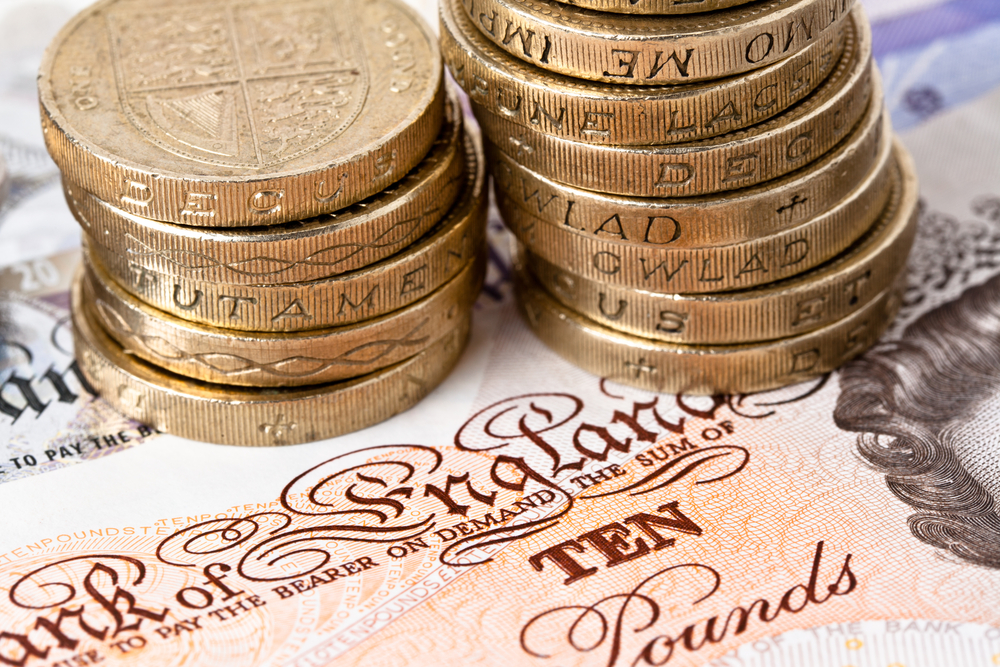Household Bills
The pound gets another pounding: how to get the best rate for holiday

UK holidaymakers have been willing the pound to recover some lost ground following the Brexit vote but it was also rocked by the hung parliament result. For those heading abroad soon, these top tips could help you bag a better currency exchange rate.
Less than a year since the pound plummeted by about 19% against the dollar and 13% against the euro following the referendum result, sterling fell an average of 2% overnight against more than 100 global currencies after the surprise hung parliament result.
Overnight, the euro fell from 1.153 to 1.134, while the dollar dropped from 1.293 to 1.271 according to currency experts FairFX.
This essentially means that holidaymakers heading abroad, such as on their summer holiday, will get €19 less or $23 less for every £1,000 exchanged.
The results of last night’s General Election, where neither the Conservatives nor Labour were able to score a comfortable majority, means that the pound is now at its lowest rate against the euro since January. The pound has also hit its lowest rate against the dollar since April when it was 1.256.
Simon Phillips, retail director at travel money specialists No1 Currency, says as long as the debate rages about whether Britain will end up with a hard or soft Brexit, the volatility will continue.
“The pound fell 2% overnight as the markets reacted in shock to the exit poll – and this is unlikely to be the last big swing as the horsetrading begins in earnest, both in Westminster and Brussels.
“Against this backdrop, predicting the future course of the pound is a mug’s game, so anyone planning a foreign trip should watch exchange rates closely over coming days for any sign of improvement.”
Ian Strafford-Taylor, CEO of FairFX, adds that Consumers looking to buy currency can still find good value by planning ahead. If you’re not set on where you travel, look at destinations where the pound goes furthest over the long-term which will help you get more bang for your buck. When you’ve booked your holiday, keeping an eye on rates is a smart move.”
Top tips to get more for the weakened pound
The below tips could help holidaymakers bag better rates on their currency if heading abroad:
Check specialist sites
It can be difficult to time exactly when to buy your foreign currency given all the volatility. On a practical level, to help you decide when the time is right, you should keep up to date with the news and check specialist rate websites such as Xe.com and Oanda.com to keep track of exchange rates and the currency markets.
Specialist brokers such as Netdania.com also offer daily reports and rate updates, and you can also keep track via the Travelex travel rate checker.
Factor in all fees
The headline exchange rate may look good but it’s important to check the overall price of the transaction after any fees. Often the best rate will be one with low commission and good value on handling costs, credit card charges and delivery fees.
Exchange more money for a better rate
If you prefer paying in cash while abroad, consider exchanging larger amounts of money to get a better exchange rate. For example, Post Office money currently offers a €1.08 rate for orders of £400+ but if you exchange £500, you will get €1.10 for each pound. You’ll need to weigh up whether you’re comfortable taking such a large quantity of cash with you and if you don’t spend it all, it’s likely you’ll get a worse ‘buy back’ rate.
Currency specialist Caxton FX offers a ‘buy back guarantee’ for £5 promising to buy back your unused currency at the same rate you bought it for, so if the exchange rate changes you won’t lose out.
Prepaid currency card
A prepaid currency card allows holidaymakers to pre-load currency on to the card and lock in the exchange rate on the day, which could be a good option if the value of the pound spikes on a particular day.
These cards also tend to offer better exchange rates than those from a bureau and with a prepaid card, you don’t need to load all your currency at once as they allow you to add smaller increments to avoid losing out on poor exchange rates.
See YourMoney.com’s Why you should consider a prepaid card for your holiday cash for more information and to see a comparison of the top cards.
Online vs in-store rates
You may be better off ordering your foreign currency online rather than checking the rate on the web then heading to the provider’s bureau. Research from M&S Bank found that of 12 foreign currency providers, only two offered customers the exact same advertised rate in-store as online.
Currency sales
Travel money sites such as Asda Money often run short-lived currency sales offering better rates on some currencies. While some may have an exchange minimum, it can mean you get a more attractive rate than offered elsewhere. Just make sure to factor in any delivery costs. Keep an eye on Yourmoney.com for details of upcoming currency sales.
Avoid airport bureaux at all costs
You should avoid airport bureaux at all costs as you are bound to get significantly less for your pound. Being captive markets, airports will take a much higher margin for foreign currency. Even if the rate is just 2% higher, this could be as much as £40 on the average family’s holiday spending money.
Use specialist overseas debit and credit cards
Many holidaymakers stick to their everyday cards to pay for goods and services abroad. But picking the right plastic can save you about £100 in charges in a fortnight. See YourMoney.com’s Best and worst debit and credit cards for overseas use for more information.